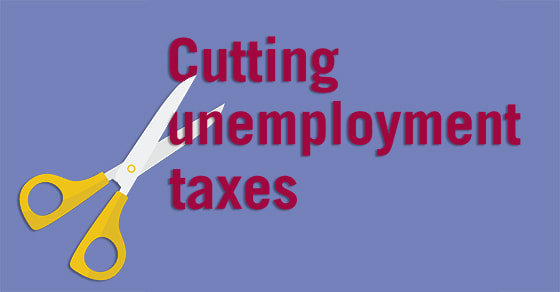|
Unemployment tax rates for employers vary from state to state. Your unemployment tax bill may be influenced by the number of former employees who’ve filed unemployment claims with the state, your current number of employees and your business’s age. Typically, the more claims made against a business, the higher the unemployment tax bill.
Here are six ways to control your unemployment tax costs: 1. Buy down your unemployment tax rate if your state permits it. Some states allow employers to annually buy down their rate. If you’re eligible, this could save you substantial dollars in unemployment taxes. 2. Hire new staff conservatively. Remember, your unemployment payments are based partly on the number of employees who file unemployment claims. You don’t want to hire employees to fill a need now, only to have to lay them off if business slows. A temporary staffing agency can help you meet short-term needs without permanently adding staff, so you can avoid layoffs. This is also a good way to try out a candidate. 3. Assess candidates before hiring them. Often it’s worth a small financial investment to have job candidates undergo prehiring assessments to see if they’re the right match for your business and the position available. Hiring carefully will increase the likelihood that new employees will work out. 4. Train for success. Many unemployment insurance claimants are awarded benefits despite employer assertions that the employee failed to perform adequately. Often this is because the hearing officer concluded the employer hadn’t provided the employee with enough training to succeed in the position. 5. Handle terminations thoughtfully. If you must terminate an employee, consider giving him or her severance as well as offering outplacement benefits. Severance pay may reduce or delay the start of unemployment insurance benefits. Effective outplacement services may hasten the end of unemployment insurance benefits, because the claimant has found a new job. 6. Leverage an acquisition. If you’ve recently acquired another company, it may have a lower established tax rate that you can use instead of the tax rate that’s been set for your existing business. You also may be able to request the transfer of the previous company’s unemployment reserve fund balance. If you have questions about unemployment taxes and how you can reduce them, contact our firm. We’d be pleased to help. © 2017
0 Comments
Your comment will be posted after it is approved.
Leave a Reply. |
AuthorAdam Carr, MBA, EA Archives
June 2024
Categories
All
|


 RSS Feed
RSS Feed

